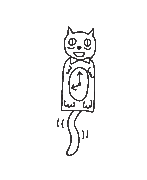
Our Plastic Negative Certification with rePurpose Global (& more)
A fact: more than 380 million tons of plastic are produced every year around the globe. About 9% of that gets recycled, a majority ends up in landfills, and around 8 million tons are dumped into the ocean.
As a small company with a big appetite for waste reduction, we wanted to spend some time talking about this "villain" in our midst—aka, plastic. We do a lot to reduce our plastic waste, but we’re not perfect. We want to give our customers a chance to understand our plastic use thoroughly (some plastic is unavoidable and actually quite important). And to learn about an important new step we're taking to remove plastic waste from nature by earning a Plastic Negative Certification with rePurpose Global.

WHY IS PLASTIC IN OUR LINE AT ALL?
Plastic consumption has major implications for the environment, in no small part because it's made out of fossil fuels, a huge climate culprit. There are many uses of plastic in the world that are superfluous, yet they persist because they’re inexpensive for companies to produce and for consumers to purchase. There are also many uses for plastic in the world that are vital—think about life-saving medical equipment or tools for people with differing abilities.
Where we’ve found a replacement for plastic (cc: compostable deo tubes!) we’ve used it. But some plastic is necessary to create hygienic, shelf stable and easy-to-use skin care products.
Here are some examples of where plastic is needed at our company, and how we’ve addressed its waste management:
Pumps: Plastic pumps are important for the safety and hygiene of certain products. If you see a pump on your Meow Meow Tweet product, you can be certain it’s there for a good reason. Sticking your hands into a liquid toner every day would contaminate the product. Dumping a quantity of gel toner or body oil into your hands would result in product waste, creating a different sustainability quandary.
To manage the waste of this inevitable plastic part, we offer free returns of pumps. Once they’re returned to our facility, we send them to Terracycle, a company that recycles plastic parts that municipal facilities won’t.
Production and office waste: Even when we’re doing our best, some plastic waste is unavoidable. From the plastic bags that keep our shea butter safe during shipping to the bits and bobs of trash left over from incoming shipments, we will likely always have some plastic involved in our process. The plastic that gets discarded at our HQ is weighed each week so we can keep track of our plastic footprint. Our new partnership with rePurpose Global helps us take responsibility for this waste (keep reading for details).
ALL THE WAYS WE REDUCE PLASTIC WASTE
Avoiding plastic often requires a design solution or packaging innovation. We’ve created some systems and programs to further streamline waste within our studio walls and for our customers.

BULK AISLE
Our bulk aisle cuts down plastic waste by giving consumers the option to buy bigger sizes of their favorite products (at a discount). This means that if you buy bulk body oil and you already have the glass bottle with a plastic pump at home, you can simply sanitize the bottle and pump, refill the bottle and reuse the pump… forever.
Our bulk products come in aluminum bottles—the material most likely to be accepted by municipal recycling facilities—or you can mail them back to us for reuse at no shipping cost.

PAPER TUBES
The paper tubes that house our push-up deodorant sticks, lip balms and repair balm prevent plastic from entering the waste stream by providing a biodegradable alternative. The tubes are made from 90% recycled materials (80% post-consumer) and if you put them in your backyard compost, they’ll biodegrade completely within a year.
It took a lot to design our paper tubes exactly how we wanted them—and we still don’t consider them a perfect solution. The tubes are single-use where our deodorant creams are sold in a reusable and refillable glass jar.
These solutions aren’t all-encompassing, and we’re just one small business. We’re happy that bigger companies are adopting paper tubes, but there’s still more to do. We’d like to see the beauty industry turn toward refillable and reusable packaging, and we hope that in the future we’ll be able to collaborate with other small brands to cooperatively access more custom plastic-free packaging.
PLASTIC JUST GOT DUMPED
Plastic is getting dumped all the time. Remember that statistic at the beginning of this article? Eight million tons of plastic goes to the ocean every year. While our plastic use may just be a drop in the bucket comparatively, it’s our drop.
Starting in April 2021, we’ll have earned our Plastic Negative Certification through our partnership with rePurpose Global.
rePurpose Global has created an avenue for active engagement on plastic waste that extends beyond the walls of our studio. Our funds will go to the local civic engagement enterprise Multi-Layered Plastic Packaging Recovery in Aurangabad, India, to develop solid waste management systems, including plastic recovery and recycling. We’re funding to remove 2x the plastic waste from nature that we produce. That’s 800 kilos of plastic waste per year—a miniscule fraction of the plastic pollution on our planet, but it's the fraction that we can take responsibility for.
We see this certification as one more way that we can design for circularity, build regenerative systems, and be thoughtful about the impact of our products. We celebrate these initiatives while simultaneously recognizing that they are not enough. Imagine if Coca-Cola went Plastic Negative though? Maybe one day.
The Meow Meow Tweet Blog Is A Collaborative Thought Project Between The Founders Of Meow Meow Tweet And Our Editorial Team. This Post Was Written By Faye Lesser and Vera Kachouh.

